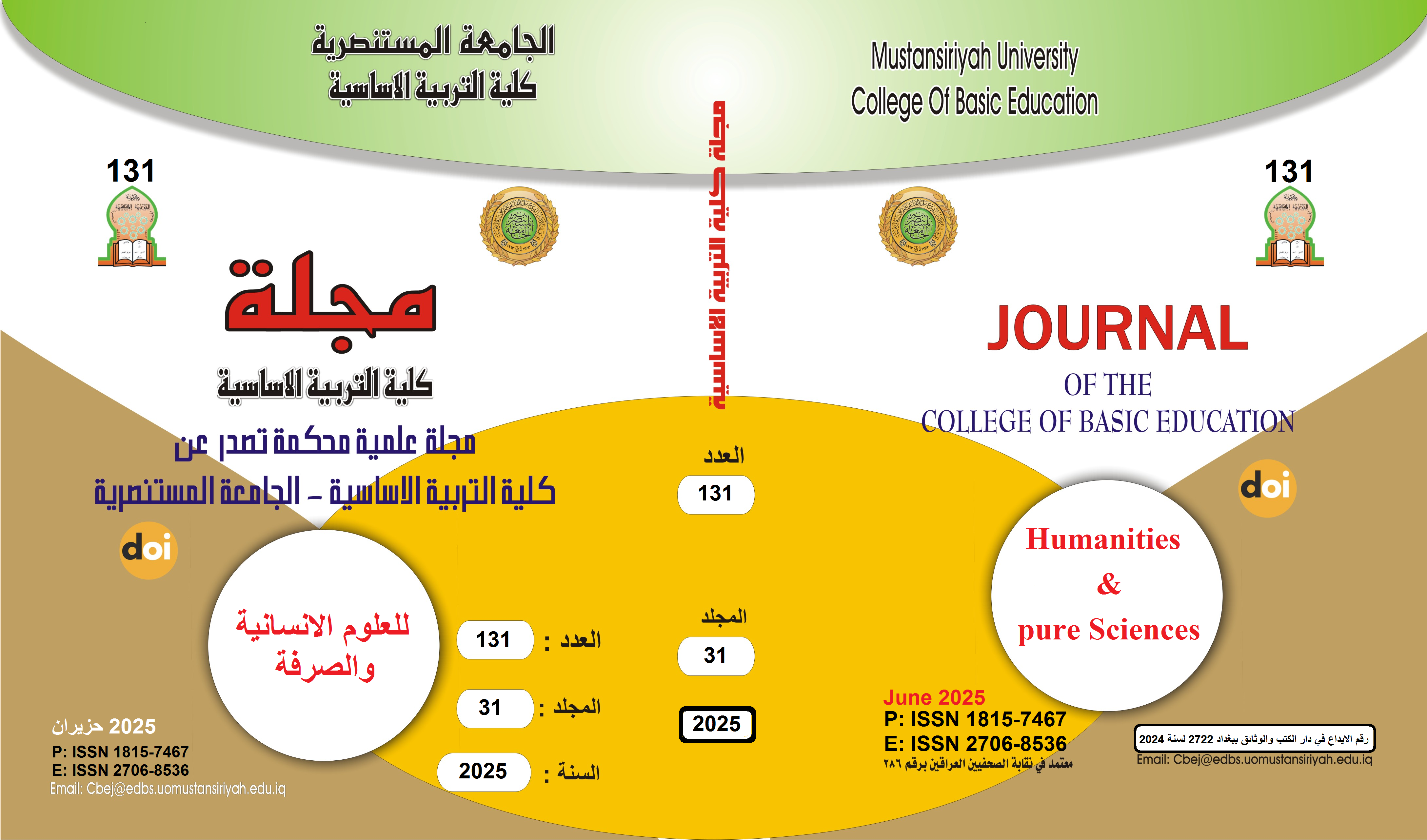The Effect of the FATA Super Learning Model on Achievement and Desire to Learn Mathematics Among Third-year Middle School Students By
Main Article Content
Abstract
The aim of this research is to identify the effect of the FATA super learning model on achievement and desire to learn mathematics among third-year middle school students. The experimental method was used with a quasi-experimental design with a post-test for two equivalent groups. The research sample includes (76) female students distributed equally between the two groups. The experimental group studied according to the FATA super learning model and the control group studied using the traditional method. The equivalence for the two groups performed using several variables such as chronological age, previous achievement in mathematics, and desire to learn mathematics.To achieve the research goal, two tools were formulated: the first tool is the test for achievement in mathematics which consists of (32) synthetic test items (objective and essay), and the second is the scale for the desire to learn mathematics which consists of (40) positive and negative items with a five-point scale. The appropriate statistical analyses were conducted for the two research tools while ensuring their psychometric properties.The results showed that the experimental group students who studied according to the super learning model outperformed the control group students who studied in the traditional way in the achievement test and the scale of desire to learn mathematics. In continuation of the research, the researcher formulated a number of recommendations, including encouraging mathematics teachers and instructors to apply the principles of super learning and its stages during mathematics lessons, which focus on the positivity of learners and improve their learning outcomes instead of traditional methods
Article Details

This work is licensed under a Creative Commons Attribution-ShareAlike 4.0 International License.
